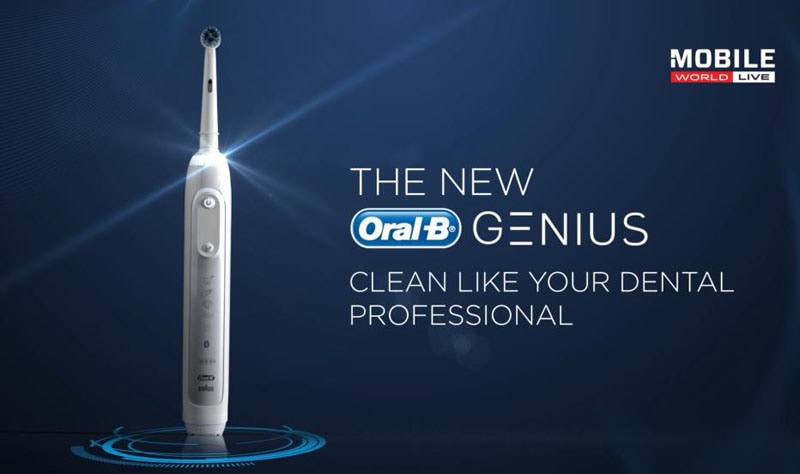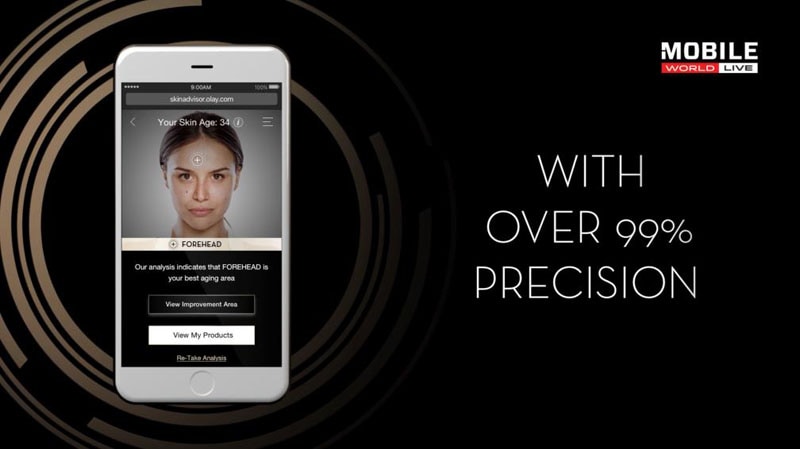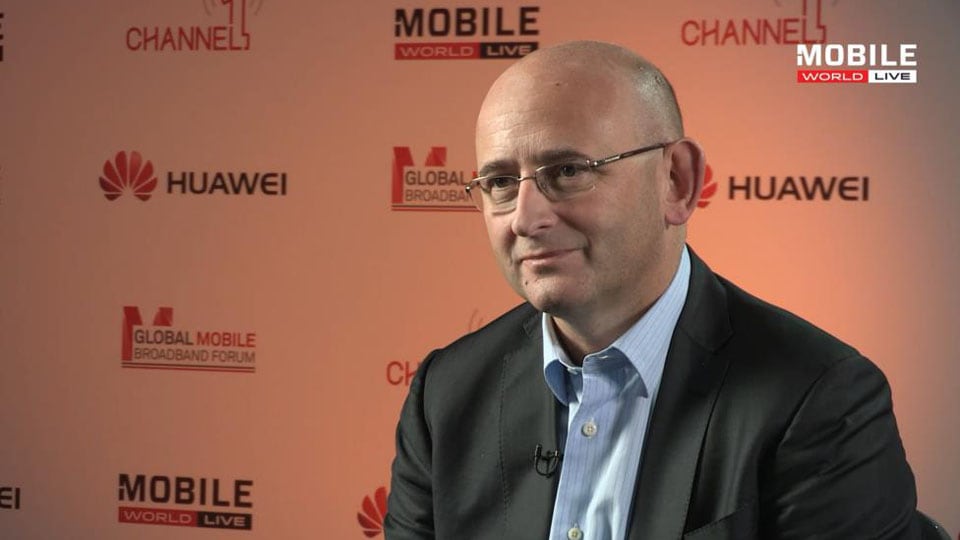P&G: Making the ordinary extraordinary with mobile
A toothbrush that tells you you're brushing all wrong? The consumer goods giant P&G is using IoT to do exciting new things with its products.


By Linda Xu
The evolution of mobile technology has transformed almost every industry across the world. It has heightened consumer expectations about their relationship with suppliers of everything from the next generation of cars to everyday items such as toothbrushes and skincare products. One company that has embraced this new technology and propelled the everyday to new heights is multinational consumer goods company Procter & Gamble (P&G).
Customers now have new methods to communicate with companies and agile businesses can take advantage of opportunities to create new engagement platforms and expand the types of services they offer. One company which has embraced this new technology and propelled the everyday to new heights is multinational consumer goods company Procter & Gamble (P&G). P&G is one of the largest companies in the world, with annual sales of US$65 billion and operations across the globe. Despite being in business for 180 years, mobile has created one of the largest disruptions the company has experienced.
This is a challenge P&G has grasped enthusiastically. It has introduced new technologies to its range and pioneered apps that help IoT become a reality within its sector.
P&G launched the world’s first smart toothbrush at Mobile World Congress in 2016 and has since enhanced that application, in addition to creating health and wellness products based around AI and other smart technologies.
Its Europe CEO Gary Coombe said the company had seen great success with the connected toothbrush and had collated data that outlined the vast difference the innovation had brought to the lives of customers. “The Internet of Things allows a range of products to be connected and our product design is changing - to the delight of consumers,” he said at Huawei’s recent Mobile Broadband Forum in London. “The impact of mobile has been transformational.”
Discussing the toothbrush and related app – which has already attracted three million downloads – he added: “It’s a remarkable piece of technology. It connects your toothbrush with your cell phone. It’s like having a dentist in the bathroom.” The toothbrush itself allows the consumer to understand the level of pressure they apply when cleaning their teeth and identify any areas of their mouth where their brushing technique is less than optimum. “On average, a consumer that uses this technology brushes for over two minutes versus 45 seconds,” Coombe said. “So it makes a meaningful difference to oral health, all enabled by mobile technology.”

Applying expertise
P&G has an extensive portfolio, which includes beauty brand Olay, cleaning product Flash and detergent company Ariel. For a number of these notable international brands, it has developed related smartphone applications to enhance the value customers get from the company. In some cases, this has also created excellent upsell opportunities.
One of the company’s best received and most well-publicized ventures into creating a digital application relates to its beauty brand Olay.
Users of the Olay Skin Advisor service take a selfie, which is then analysed against images of women of a similar age and provides an estimate of the subject’s age. It will then offer advice on how to reduce the signs of ageing, based on skin condition and, vitally for the company, recommend which one of its products could address any problem areas.

“The potential of AI is enormous,” Coombe said. “We’ve started on that journey and we have a great example already. Many millions of consumers have downloaded the Skin Advisor app.”
“There’s a huge moment of truth as a consumer because the first thing it tells you is your skin ages and then of course it advises you on a skincare regimen and which products to use to improve your skin. That’s an AI-driven system and I’m sure there’s much more to come.”
The hugely competitive industry of toiletries, beauty products and other fast moving consumer goods relies on being able to offer something unique, yet something that can be expanded widely.
Coombes added the beauty app and toothbrush are the result of the company’s strategy of utilizing and developing new technologies to diversify and enhance its existing offerings. This is one of the many ways P&G seeks to differentiate itself in the competitive retail sector.
Mobile marketing
It isn’t just applications designed to enhance the use of existing products where mobile technologies have made an impact on P&G and companies like it. Mobile has transformed everything from logistics to marketing.
In marketing and advertising – two key elements of a consumer-facing business such as P&G – first the internet and then mobile changed the landscape completely. New channels offer greater personalization opportunities, but fewer spaces for large-scale, detailed advertisements.
Coombe said the firm’s spend on digital channels in Europe had now expanded to become larger than its TV advertising budget across the continent.
“It’s now overtaken TV as our primary channel and of course that raises enormous challenges for us,” he added. “The creative that works on TV is a 30 second commercial that you view on a 40 inch screen. The creative that works on mobile is 1.7 seconds on a 5 cm screen – completely disruptive.”
“The other thing is the media supply chain is very different,” he added. Although admitting techniques to perfect the platform were still being developed, he saw a bright future for the platform. “It’s not a fair or well-run supply chain yet,” he noted.
“There are far too many bots viewing our advertising as opposed to human beings. We’re not getting what we pay for right now.”
As P&G has a number of brands aimed at the family market in its portfolio, the company has to be careful of the types of content its branding was seen in the proximity of, and linked to, when advertising online.
“There’s a danger in this newly-emerging world that our communication is associated with unsavoury or unsuitable content on the Internet,” he warned. “Digital is huge for us but it’s still a little bit like the Wild West. It’s important that the media suppliers, and the media owners, and the technology companies help us create a media channel that’s worthy, appropriate, and fair.”
Retail disruption
Technology has brought disruption across the entire span of P&G, and its partners’ businesses. The Internet and industrial IoT have transformed the manufacturing, logistics and retail industries completely, creating both efficiencies and opportunities.
In manufacturing and logistics, IoT has enabled cost savings as well as improving the control large companies have on their supply chains.
Traditional retail, however, has arguably seen the biggest change from the Internet. Coombe said his company recognised there was now a second round of disruption taking place in the retail sector.
“First was the move from real stores to going online, usually using a cell phone,” he said. “Now mobile technology is enabling even more disruption, which is the move to voice.” This, he emphasised, impacts both retailers and the brands themselves.
“Technology transforms every aspect of our business; the way we communicate with them, the way we enable them to shop via online and mobile-enabled shopping,” he added.
“Voice shopping is coming, but perhaps the most exciting thing for me is the fact that our historically fairly functional products, with the addition of mobile technology, can create new services.”
Partnering for success
To embrace mobile technology fully, it’s vital that companies such as P&G stay ahead of its rivals and launch successful and popular use cases that embrace new technologies such as the Internet of Things.
To achieve this, P&G carefully selects its technology partners to ensure it stays ahead of the curve and delivers innovations that customers find exciting and useful.
“As we think about developing products that utilize mobile technology – I mentioned the Oral-B toothbrush, there are many others like that coming – we’re looking forward to partnering with many companies in this space to develop that technology together and to delight consumers together,” Coombe added.
“The fact that [mobile] technology can create products and services for consumers that delight them is very, very exciting for our industry.”
Commenting on his experience with Huawei at the Global Mobile Broadband Forum in London, he added, “If they can deliver the sort of technology dreams that I’ve seen them talk about, it will be transformational. Not just to the telecoms industry, not just to the digital industry, but to all industries.”
“The reality is what’s being created has the ability to disrupt all industry and all of commercial enterprise. Disruption can be a negative thing, but it can also be a huge opportunity and I’m sure that Huawei can deliver the technology to help us disrupt industry for the better, and delight consumers going forward.”




